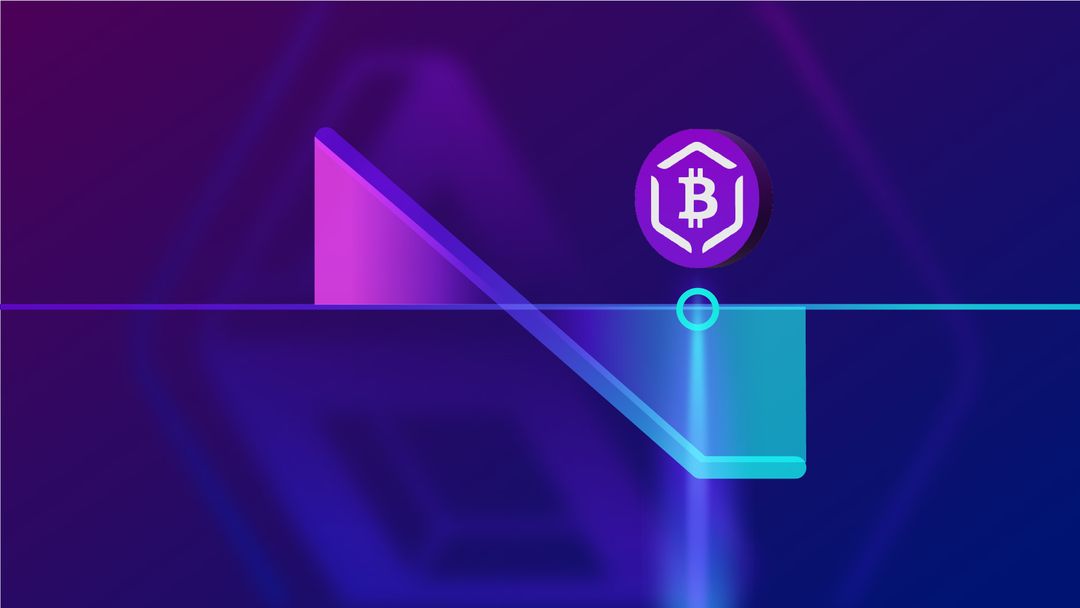Explore the innovative approach of generating passive income through covered calls with dlcBTC. Learn how this strategy provides income from premiums while retaining asset ownership.
Key Takeaways
● Covered calls offer a strategic way for dlcBTC holders to generate passive income by selling call options on their holdings, earning premiums while maintaining the potential for asset appreciation.
● dlcBTC’s non-custodial, secure nature makes it an ideal platform for covered call strategies, allowing investors to leverage BTC in DeFi applications with enhanced control and security.
● The covered call strategy involves a trade-off, capping the upside potential in exchange for immediate income through premiums.
● Market volatility and the need to lock up assets for the duration of the option contract are major risks and considerations that investors must manage through thoughtful planning and risk management strategies.
● Implementing covered calls with dlcBTC not only diversifies an investor’s income streams but also underscores the utility and flexibility of dlcBTC in the broader financial ecosystem.
The concept of generating passive income through covered calls is gaining traction, especially among long-term Bitcoin (BTC) investors seeking to enhance the utility of their holdings. At its core, a covered call involves holding a specific asset, such as dlcBTC, and selling call options on that same asset. This strategy serves a dual purpose: it provides the investor with potential income from the option premiums and allows them to retain ownership of the underlying asset, thereby benefiting from any long-term appreciation.
dlcBTC, with its unique properties as a self-custodied wrapped Bitcoin, offers a prime foundation for employing covered calls. By leveraging dlcBTC, investors can engage in this strategy while maintaining the security and control inherent to the dlcBTC system. This blend of dlcBTC’s secure framework and the income-generating potential of covered calls presents a novel avenue for Bitcoin holders to maximize the utility and profitability of their digital assets.
This article explores the mechanics of covered calls, how they work in the crypto world, and how investors can strategically use this approach to aim for above-the-market average Annual Percentage Yield (APY) on their dlcBTC holdings.
Understanding dlcBTC
dlcBTC represents a pivotal innovation in blockchain interoperability, especially for BTC enthusiasts looking for secure and versatile ways to engage in decentralized finance (DeFi). As a non-custodial wrapped version of BTC, dlcBTC allows users to lock their BTC in a multisig contract, known as a Discreet Log Contract (DLC) lockbox, that is only executable by the depositor and attestors. This mechanism ensures that the BTC remains under the depositor’s control, mitigating risks such as fraud, governmental seizure, and custody issues prevalent in other wrapped Bitcoin solutions.
The dlcBTC architecture is designed with security and transparency at its core. Each transaction and locking mechanism are verifiable on the blockchain, providing clear visibility and auditability for every user. Moreover, dlcBTC’s integration with smart contracts allows BTC to be utilized in DeFi applications, expanding its utility beyond simple value storage.
The distinct advantage of dlcBTC lies in its combination of BTC’s inherent value with the flexibility and opportunities presented by DeFi platforms. By using dlcBTC, investors enjoy the security features of the Bitcoin-base layer and unlock new avenues for earning potential through strategies like covered calls. The self-custodial nature of dlcBTC, coupled with its rapid burn and mint times, positions it as an ideal asset for covered call strategies, promising enhanced control, security, and income generation opportunities for its holders.
Basics of Covered Calls
Covered calls are a cornerstone strategy in options trading, offering a conservative approach to income generation on an existing asset portfolio. At its core, a covered call involves an investor holding a long position in an asset – dlcBTC in our case – and selling a call option on that same asset. This call option grants the buyer the right, but not the obligation, to purchase the asset at a specified price (the strike price) within a specific time frame. The seller of the call (the dlcBTC holder) receives a premium upfront from the buyer of the option.
When applied to traditional markets, covered calls are a way to generate additional income on stocks that may otherwise see little price movement. This strategy is especially attractive for assets that yield dividends, as it can add another layer of income. In the context of crypto and dlcBTC, the principle remains the same, but the dynamic and volatile nature of crypto markets introduces new opportunities and challenges.
The beauty of this strategy in the crypto domain is its adaptability. With dlcBTC, investors engage in the DeFi landscape and apply traditional financial instruments, like covered calls, to enhance their investment strategy. This approach provides a structured method to earn a consistent income, even in a market known for its unpredictability, making covered calls an appealing option for dlcBTC holders looking to maximize the utility of their holdings.
Why Users Might Want to Consider Covered Calls to Generate Yield
In the quest to generate yield in crypto, BTC holders often face the challenge of finding reliable, low-risk income streams that do not threaten the security of their holdings. Covered calls emerge as a compelling solution, bridging the gap between the conservative financial strategies of traditional markets and the innovative, fast-paced world of crypto. This strategy enables BTC holders, through dlcBTC, to generate consistent yield in a known and time-tested manner without parting with their assets.
By selling call options against their dlcBTC, investors earn premiums – providing a steady income flow. This approach not only preserves the fundamental principle of “holding” in the crypto domain but also introduces an effective yield-generating mechanism, offering a strategic avenue for investors to enhance the utility and profitability of their holdings while maintaining exposure to potential long-term appreciation.
Generating Income with Covered Calls
Generating passive income through covered calls involves selling call options on assets that one already owns, in this case, dlcBTC. This strategy allows dlcBTC holders to earn a premium, providing a potential income stream while still participating in the broader cryptocurrency market. Here’s how it unfolds:
Step 1: Holding dlcBTC
The first step involves owning dlcBTC, which is the underlying asset for the covered call strategy. Investors committed to holding dlcBTC for the long term find this approach appealing, enabling them to generate returns on their holdings without selling them.
Step 2: Selling Call Options
The dlcBTC holder then sells call options on their dlcBTC holdings. These options give the buyer the right, but not the obligation, to purchase dlcBTC at a predetermined price (strike price) by a specific date (expiration date). In return for selling this option, the dlcBTC holder receives a premium from the option buyer. This premium is the immediate income generated from the covered call strategy.
Step 3: Possible Outcomes
As the expiration date approaches, two primary outcomes are possible:
● If the market price of dlcBTC remains below the strike price, the buyer will unlikely exercise the option. The dlcBTC holder retains their coins and the premium received, contributing to the overall yield.
● If the market price of dlcBTC exceeds the strike price, the buyer may exercise the option. The dlcBTC holder is obligated to sell their dlcBTC at the strike price. While this caps the maximum gain on the dlcBTC itself, the premium received adds to the transaction’s profitability.
Step 4: Repeating the Process
Whether the option is exercised or not, the dlcBTC holder can continue to employ this strategy by selling new call options and continuously generating income through premiums.
Risks and Considerations
While covered calls can be a lucrative strategy for generating passive income, instead of letting your assets lie idle, it’s crucial to understand the associated risks and considerations:
Capped Upside Potential
The primary trade-off in a covered call is the limitation on potential gains. When investors sell a call option on their dlcBTC holdings, they agree to sell their assets at the strike price if the option is exercised. This means if dlcBTC’s price skyrockets beyond the strike price, the investor misses out on those additional gains, as they are obligated to sell at the predetermined price.
Market Volatility
Cryptocurrency markets are known for their volatility. Rapid price movements can make covered call strategies riskier than in more stable equity markets. It’s essential to set strike prices and expiration dates thoughtfully to mitigate unexpected market swings.
Asset Lock-Up
Implementing a covered call strategy involves holding the underlying asset until the option’s expiration date. This could be a limitation if you need liquidity or want to capitalize on market movements by selling your dlcBTC.
Contractual Obligations
When you sell a call option, you enter into a contractual obligation. If the option buyer decides to exercise the option, you must fulfill the contract by selling your dlcBTC at the strike price, regardless of its current market value.
Risk Management
Effective risk management is crucial when engaging in covered calls. Utilizing stop-loss orders, diversifying your portfolio, and carefully selecting strike prices and expiration dates can help manage risk. Staying informed about market trends and adjustments that may impact your strategy is vital.
Conclusion
Integrating traditional investment strategies like covered calls with innovative digital assets such as dlcBTC represents a forward-thinking approach to income generation. The strategy allows dlcBTC holders to capitalize on their investments by earning premiums through selling call options. By carefully selecting strike prices, managing expiration dates, and staying informed about market trends, investors can optimize their covered call strategies to align with their financial goals and risk appetite.



